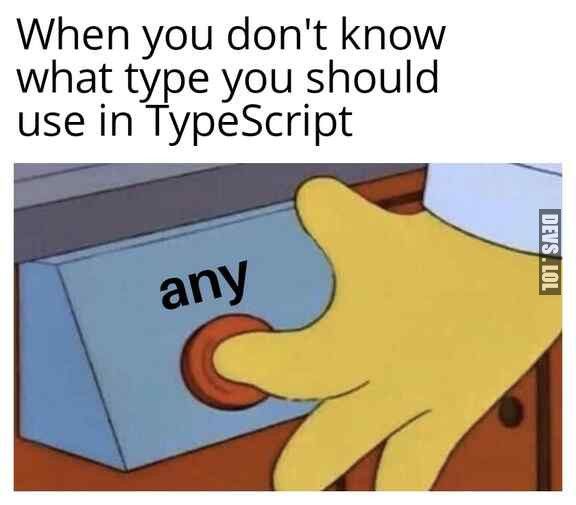Overload Signatures in Typescript
In TypeScript, we can specify a function that can be called in different ways by writing overload signatures. You can use this to define functions with returned type dependent from arguments values.

When do you have function that returns different types in dependence from parameter values overload signatures can be exactly what do you need.
Let me introduce context.
We have super simple function that computes volume of hypercube:
interface HyperCube {
size: number
dimension: number
}
export function volume(cube: HyperCube): number {
return Math.pow(cube.size, cube.dimension);
}But because of our volumes are really huge we need display them in snake case notation. Eg.: 1_000_000_000 instead of 1000000000.
We can add function to format
export function formatNumber(num: number): string {
return num.toString().replace(/(\d)(?=(\d{3})+(?!\d))/g, '$1_')
}but we do not want to write this formatNumber function always when we using conversion to string. Instead we would like to add second parameter to volume function to decide if we returning string or number.
export function volume(cube: HyperCube, asString: boolean = false): string | number {
const volume = Math.pow(cube.size, cube.dimension);
return asString ? formatNumber(volume) : volume;
}Unfortunately now using volume function we do not know if we will get string or number. We do not want to use .toString or parseInt any time.

Fortunately there is concept called overload signatures. It allows to select returned type in dependence from parameters values.
In our case we want number is asString is false, in other case we need return string. To apply overload signature we can use the following syntax
export function volume(cube: HyperCube, asString: false): number
export function volume(cube: HyperCube, asString: true): string
export function volume(cube: HyperCube, asString: boolean = false): string | number {
const volume = Math.pow(cube.size, cube.dimension);
return asString ? formatNumber(volume) : volume;
}now our returned type is correct and depend from asString value.
Sources:



